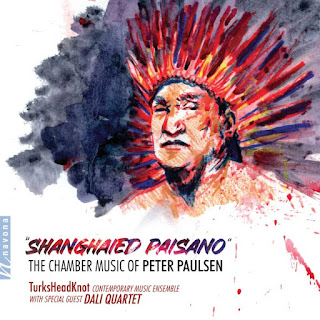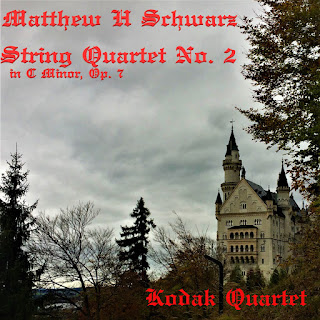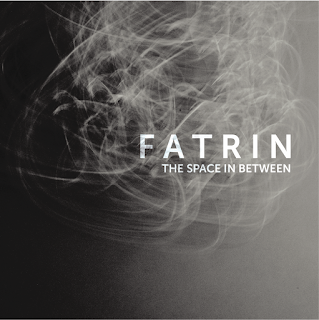Yotam Haber - "Bloodsnow" album review
Yotam Haber - Bloodsnow album review
Haber composes wildly stimulating music, with sections ranging from hair-raising to ominously meditative.
Currently on faculty at UMKC Conservatory, Yotam Haber composes wildly stimulating music, with sections ranging from hair-raising to ominously meditative. His most recent release, Bloodsnow, out on Sideband Records, is a collection of journeys, with reflections of his experiences in Alaska encasing the album. As a whole, Haber's music feeds into the traditional complexity of contemporary classical music, but does so with gripping dignity.
Bloodsnow, the opening titular work performed by the Talea Ensemble, is the first in Haber's cycle of pieces inspired by his time spend in the Alaskan wilderness. The cold potential of natural violence underlines Haber's music, placing the listener perpetually on edge. The work, scored for flute, clarinet, string trio and piano, with the strings and piano doubling on harmonicas, completely transforms the traditional ensemble into the most gorgeous of night terrors. The implementation of differently-keyed harmonicas, combined with the opening inside-piano knocking and buzzing bass clarinet crescendi, instantly shift us into Haber's blurry, off-white landscape. His scoring and organization of materials is innovative yet highly-controlled; the harmonicas are reigned in enough to spark interest, without becoming kitschy, distracting, or too folksy. Bloodsnow is even more effective due to Talea's seriousness and dedication. Even during the relatively peaceful moments, the performance never loses any intensity during the emotional, eleven and a half minute journey.
The album continues with an untamed two-part song cycle, They Say You Are My Disaster, setting Hebrew text from two prominent Israeli poets. "Schnitzel", using Dorit Weisman's poem of the same name, connects quite directly with the disturbing nature of the text. An extended metaphor comparing a prior mastectomy to preparing raw meat, Weisman is not subtle with her graphic language, allowing Haber to both play into the darkness and create ironic contradictions within his lyrical moments. "Oh My Bank", showcasing Tahel Frosh's conflicting relationship with Capitalism, contrasts the first song by becoming surprisingly groovy. It is incredibly impressive how Haber smartly incorporates his sense of groove to instinctively spin out of the articulate Hebrew text, all while staying within his contemporary harmonic language. While Haber's purposeful paradoxical choice to have a male singer perform these two poems "by women about women" is unsolid at best, John Taylor Ward's resonant and rich baritone brings a solemn and serious tone to these songs. His Hebrew diction is also incredibly refined, emphasizing Haber's nuanced and idiomatic setting.
Resistance, a new virtuosic work for solo alto saxophone, traverses a dense slurry of motivic material, with Haber continuously finding new ways to develop and recontextualize his material. Crafting a solo piece, especially a solo wind instrument piece, this concentrated is no small feat. Saxophonist Don-Paul Kahl navigates Resistance with exceptional skill and grace, enabling us to follow along inside Haber's complex and ever-changing thoughts. The extended techniques and microtonal playing is spot on; Kahl has the caliber of a soloist with whom composers' dream to collaborate.
Haber's release culminates with Choref, a sequel to Bloodsnow. Meaning winter in Hebrew, Choref is inspired by a paradoxical perspective of the Alaskan winter: one which is quietly still yet brimming with life. Performed by the American Wild Ensemble, Choref fits within their mission to celebrate places in the American wilderness. While an entertaining work, Choref does not match up to the power of Bloodsnow, both in terms of composition and performance.
listen to Bloodsnow on BandCamp here
© 2023 Brutal New Music Reviews




Comments
Post a Comment